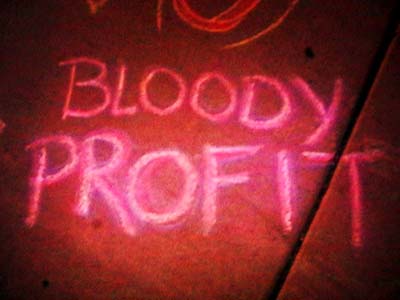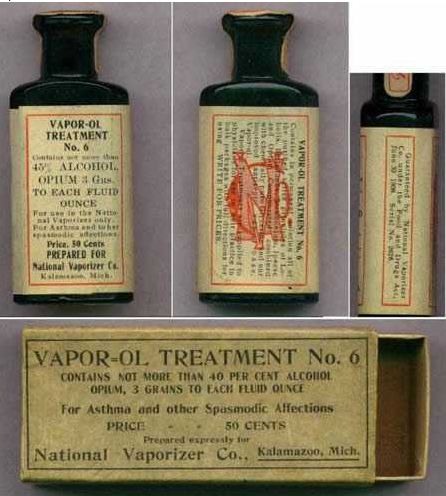Contents
- Introduction
- Preface
- Overview
- Relief Valve
- LECTURE 1: Why We Are In The Dark About Money
- LECTURE 2: The Con
- LECTURE 3: The Vatican-Central to the Origins of Money & Power
-
LECTURE 4: London The Corporation Origins of Opium Drug Smuggling
- Early Barter System
- Trade started with a Sail Boat called a Carrack
- Corporations and Maritime Time Line
- Marine Merchants Timeline
- Levant Company
- London The Corporation
- Church of England The Corporation
- Just Steal It - EIC Commits First Corporate Espionage!
- Matheson & Jardine Families
- The Bankster Families Who Control Opium Smuggling
- Imperialism Rules Enlightened Despotism
- Dutch East India Company
- The Honorable East India Company
- Hong Kong Shanghaied
- Chatham House
- Thuggee the First Fraternity
- Bank of England
- Pirate Bankers
- EIA First Contact With Shanghai China
- The Collapse of the Royal African Company: How Open Trade Trumped the Monopoly
- Shanghai and the First Contact with the West
- Opium - TimeLine
- Opium Trade
- The Opium Wars
- Letter to Opium Drug Smuggling Queen Victoria
- Lecture 4 Objectives and Discussion Questions
- LECTURE 5: U.S. Pirates, Boston Brahmins Opium Drug Smugglers
- LECTURE 6: The Shady Origins Of The Federal Reserve
- LECTURE 7: How The Rich Protect Their Money
- LECTURE 8: How To Protect Your Money From The 1% Predators
- LECTURE 9: Final Thoughts
2015 Companies House, which is a UK government agency dealing with the licensing of companies, has launched a new Web site in beta along with an API. “It said the service has made 170 million company records available free of charge, including information on financial accounts, directors and secretaries, and that users will be able to find real time updates. Although all of the information was previously in the public domain, Companies House levied a charge for access.” https://twitter.com/ukauthority
1497 The term Levant, which first appeared in English in 1497, originally meant the East in general or "Mediterranean lands east of Italy".
It is borrowed from the French levant 'rising', that is, the point where the sun rises. The term became current in English in the 16th century, along with the first English merchant adventurers in the region; English ships appeared in the Mediterranean in the 1570s, and the English merchant company signed its agreement ("capitulations") with the Grand Turk in 1579 (Braudel). The English Levant Company was founded in 1581 to trade with the Ottoman Empire, and in 1670 the French Compagnie du Levant was founded for the same purpose.
At this time, the Far East was known as the "Upper Levant".
Lord Shelbourne launched the Chinese opium trade in 1783 with Scottish merchants from the East India Company and members of the House of Windsor-allied Knights of St. John Jerusalem.
Shelbourne’s chief propagandist was Adam Smith who worked for East India, which emerged from the slave-trading Levant Company and later became known as Chatham House, home to the powerful Royal Institute for International Affairs (RIIA). East India worked with members of two secret societies – the Muslim Assassins and the Christian Knights Templar – in organizing the global drug trade.
In 1776 the high seas pirate Adam Smith wrote Wealth of Nations, which became the bible of international capitalism.
The Levant or Turkey Company, was an English chartered company formed in 1581, to regulate English trade with Turkey and the Levant. A member of the Company was known as a Turkey Merchant. https://en.wikipedia.org/wiki/Levant_Company
Following a decline in trade with the Levant over a number of decades, several London merchants petitioned Queen Elizabeth I in 1580 for a charter to guarantee exclusivity when trading in that region.
The Company had no colonial aspirations, but rather established "factories" (trading centers) in already-established commercial centers, such as the Levant Factory in Aleppo, as well as Constantinople, Alexandria and Smyrna. Throughout the Company's history, Aleppo served as headquarters for the whole company in the Middle East.
By 1588, the Levant Company had been converted to a regulated monopoly on an established trade, from its initial character as a joint-stock company. The prime movers in the conversion were Sir Edward Osborne and Richard Staper. A new charter was granted in January 1592, and by 1595 its character as a regulated company had become clear. In the early days of the company there were threats not just from Barbary pirates but during the war with Spain in 1590 and 1591 they successfully repelled Spanish galleys in attempts to capture their cargo. The Company as a result though had heavily armed ships.
The British traders had been purchasing small amounts of opium from India for trade since Ralph Fitch first visited in the mid-16th century.
https://en.wikipedia.org/wiki/Ralph_Fitch
http://www.bbc.co.uk/radio4/history/empire/episodes/episode_12.shtml
Trade in opium was standardized, with production of balls of raw opium, 1.1 to 1.6 kilograms, 30% water content, wrapped in poppy leaves and petals, and shipped in chests of 60–65 kilograms (one picul). Chests of opium were sold in auctions in Calcutta with the understanding that the independent purchasers would then smuggle it into China.
After the 1757 Battle of Plassey and 1764 Battle of Buxar, the British East India Company gained the power to act as diwan of Bengal, Bihar, and Odisha (See company rule in India).
 This allowed the company to exercise a monopoly over opium production and export in India, to encourage ryots to cultivate the cash crops of indigo and opium with cash advances, and to prohibit the "hoarding" of rice. This strategy led to the increase of the land tax to 50% of the value of crops and to the doubling of East India Company profits by 1777. It is also claimed to have contributed to the starvation of 10 million people in the Bengal famine of 1770. Beginning in 1773, the British government began enacting oversight of the company's operations, and in response to the Indian Rebellion of 1857, this policy culminated in the establishment of direct rule over the presidencies and provinces of British India. Bengal opium was highly prized, commanding twice the price of the domestic Chinese product, which was regarded as inferior in quality.
This allowed the company to exercise a monopoly over opium production and export in India, to encourage ryots to cultivate the cash crops of indigo and opium with cash advances, and to prohibit the "hoarding" of rice. This strategy led to the increase of the land tax to 50% of the value of crops and to the doubling of East India Company profits by 1777. It is also claimed to have contributed to the starvation of 10 million people in the Bengal famine of 1770. Beginning in 1773, the British government began enacting oversight of the company's operations, and in response to the Indian Rebellion of 1857, this policy culminated in the establishment of direct rule over the presidencies and provinces of British India. Bengal opium was highly prized, commanding twice the price of the domestic Chinese product, which was regarded as inferior in quality.
Bengal was a directorate of the Dutch East India Company in Bengal between 1610 until the company's liquidation in 1800. It then became a colony of the Kingdom of the Netherlands until 1825, when it was relinquished to the British according to the Anglo-Dutch Treaty of 1824. Dutch presence in the region started by the establishment of a trading post at Pipely. The former colony is part of what is today called Dutch India.
https://en.wikipedia.org/wiki/Opium

In his Confessions of an English Opium-Eater (1821, p. 188), it is still Ottoman, not Chinese, addicts about whom Thomas de Quincey writes: "I question whether any Turk, of all that ever entered the paradise of opium-eaters, can have had half the pleasure I had."
The earliest clear description of the use of opium as a recreational drug in China came from Xu Boling, who wrote in 1483 that opium was "mainly used to aid masculinity, strengthen sperm and regain vigor", and that it "enhances the art of alchemists, sex and court ladies". He described an expedition sent by the Chenghua Emperor in 1483 to procure opium for a price "equal to that of gold" in Hainan, Fujian, Zhejiang, Sichuan and Shaanxi, where it is close to Xiyu. A century later, Li Shizhen listed standard medical uses of opium in his renowned Compendium of Materia Medica (1578), but also wrote that "lay people use it for the art of sex", in particular the ability to "arrest seminal emission". This association of opium with sex continued in China until the end of the 19th century. Opium smoking began as a privilege of the elite and remained a great luxury into the early 19th century, but by 1861, Wang Tao wrote that opium was used even by rich peasants, and even a small village without a rice store would have a shop where opium was sold.